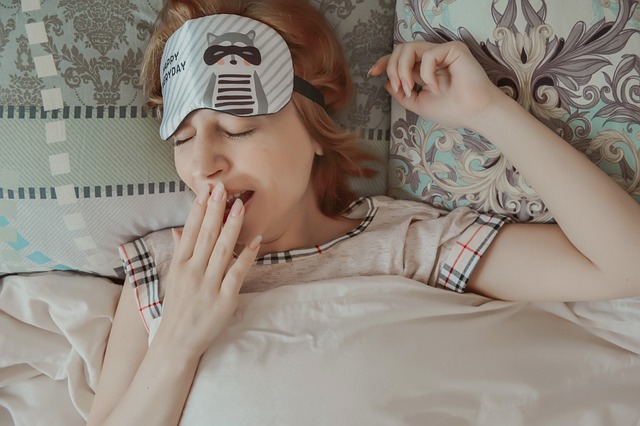Appearance, metabolism, mood, energy, fertility, or libido – these aspects of our well-being are intricately linked to our hormones, exerting significant influence on our quality of life. Achieving a harmonious balance in hormone levels is crucial for overall wellness. However, when these levels fluctuate excessively, whether too high or too low, or fail to adjust in the appropriate proportions, we experience what is known as hormonal imbalance. This imbalance can manifest in various symptoms, leading to a sense of discomfort and diminished well-being.
In this article, I will outline five common signs of hormonal imbalance.

1. Irregular periods, pain, or PMS
When our hormones are well balanced, our menstrual cycle proceeds smoothly and regular each month without significant issues.
However, certain symptoms related to your menstrual cycle may indicate a hormonal imbalance:
- PMS-like symptoms, including mood swings, bloating, breast tenderness, sugar cravings, and fatigue, which typically occur in the days leading up to your period.
- Menstrual cramps or lower back pain
- Irregular periods
- Absence of periods (referred to as amenorrhea)
- Heavy and prolonged bleeding
2. Weight Gain
You’re likely aware that weight gain can result from overeating, consuming unhealthy foods, or leading a sedentary lifestyle. However, even with a balanced diet, careful calorie monitoring, and regular exercise, shedding unwanted pounds might remain elusive. If you find the scale stubbornly climbing or notice stubborn fat accumulating in specific areas of your body, a hormonal imbalance could be at play.
Here are some signs that your hormones might be hindering weight loss:
- Persistent Fat Deposits: Particularly around the hips and thighs, which could indicate estrogen dominance.
- Weight Gain Around the Waist: This may be associated with insulin resistance or an imbalance in cortisol levels.
- Fluctuations in Weight: Notable weight shifts throughout the menstrual cycle are often indicative of imbalances in sex hormones, particularly estrogen dominance.
- Diagnosed Conditions: Conditions such as PCOS (Polycystic Ovary Syndrome) or hypothyroidism can significantly impact weight regulation.
Recognizing these signs can be crucial in addressing underlying hormonal issues that may be impeding your weight loss efforts.

3. Mood Swings
Have you experienced the rollercoaster of emotions, soaring with joy one moment, only to plummet into despair the next? Hormones wield considerable influence over our mood, thoughts, and emotions. Our sex hormones—estrogen, testosterone, and progesterone—share a close relationship with our ‘happiness and relaxation hormones’—serotonin, dopamine, and GABA. When the balance of our sex hormones is disrupted, our brain’s natural mechanisms for relaxation, sound sleep, and overall well-being can also fall out of sync.
Keep an eye out for the following signs of hormonal imbalance affecting your mood:
- Mood swings (“on cloud nine one moment, utterly downcast the next”)
- Feelings of anxiety or panic
- Heightened irritability—little things seem to irritate you more than usual
- Disturbed sleep patterns—particularly noticeable in the last one to two weeks of your cycle
- General sense of low spirits, lack of motivation, or depressive moods
Recognizing these signs can be instrumental in addressing any underlying hormonal imbalances and restoring emotional equilibrium.

4. Skin Problems
Skin issues often stem less from inadequate skincare routines and more from internal bodily processes, notably the balance of our hormones.
Here are signs that your skin problems may be linked to hormonal factors:
- Acne concentrated along the cheeks, chin, and neck
- Excessive oiliness in the skin and hair
- Dryness, thinness, or sensitivity in the skin, or accelerated signs of aging
- Skin impurities and breakouts, particularly prevalent before menstruation
Here are some common hormonal imbalances that can contribute to acne and how they may manifest on the skin:
1. Testosterone Imbalance:
-
- Testosterone is a male sex hormone present in both men and women, albeit in different amounts. An imbalance, particularly elevated levels of testosterone, can stimulate excess sebum production in the skin’s oil glands.
- This excess sebum can clog pores and create an environment conducive to bacterial growth, leading to acne breakouts.
- Testosterone imbalance can manifest as oily skin, particularly in the T-zone (forehead, nose, and chin), and can contribute to the development of cystic acne or deep, painful pimples.
-
- Estrogen Imbalance:
- Estrogen is another sex hormone that plays a crucial role in maintaining skin health. An imbalance, particularly low levels of estrogen, can lead to skin dryness and thinning.
- Reduced estrogen levels may impair the skin’s ability to retain moisture and promote collagen production, making it more prone to dryness, wrinkles, and sagging.
- Estrogen imbalance can exacerbate inflammatory acne and contribute to slower wound healing.
- Progesterone Imbalance:
- Progesterone is a hormone involved in regulating the menstrual cycle and pregnancy. Imbalances in progesterone levels can affect sebum production and skin cell turnover.
- Elevated progesterone levels can lead to increased sebum production, similar to testosterone imbalance, contributing to acne formation.
- Progesterone imbalance can also affect skin texture and tone, leading to uneven skin tone or hyperpigmentation.
- Cortisol Imbalance (Stress Hormone):
- Cortisol, often referred to as the stress hormone, plays a role in the body’s response to stress. Chronic stress can lead to dysregulation of cortisol levels, resulting in various physiological effects, including on the skin.
- Elevated cortisol levels can stimulate sebum production and inflammation in the skin, exacerbating acne breakouts.
- Cortisol imbalance can also impair the skin’s barrier function, making it more susceptible to environmental damage and irritation.
It’s important to note that hormonal imbalances can vary from person to person and may involve multiple hormones interacting.

5. Lack of Energy, Exhaustion, and Loss of Libido
In today’s fast-paced world, an increasing number of women find themselves battling exhaustion and fatigue. Balancing family, work, household responsibilities, and personal needs can be a daily struggle in our performance-driven society. Over time, prolonged stress and aging can disrupt the delicate balance of our stress hormones, potentially leading to a cortisol imbalance.
Here are some possible indicators that your adrenal glands may be overwhelmed:
- Difficulty rising in the morning, feeling uncertain about making it through the day
- Dependence on coffee or carbohydrates to stay alert
- Afternoon energy slumps
- Difficulty concentrating or finding motivation
- Loss of libido or decreased sexual desire
It’s essential to recognize that many of these symptoms are not “normal,” contrary to popular belief, even among medical professionals. However, you can alleviate and prevent issues related to hormonal imbalance by adopting a holistic approach to support your body. This includes embracing a hormone-friendly lifestyle, following a nutrient-rich, low-inflammatory diet, and incorporating targeted use of medicinal plants and supplements, such as vitamins and minerals.
If you’re experiencing additional hormonal imbalances or need further support, consider joining my Hormone Thrive Program. This comprehensive program is designed to help participants rebalance their hormone systems naturally within a 20-week period. It provides extensive background knowledge and emphasizes practical implementation. Participants receive a wealth of resources to support their hormone balance in everyday life, including meditations, workbooks, treatment protocols for various hormone imbalances, personalized recommendations for medicinal plants and supplements, Q&A sessions with me, and much more.

